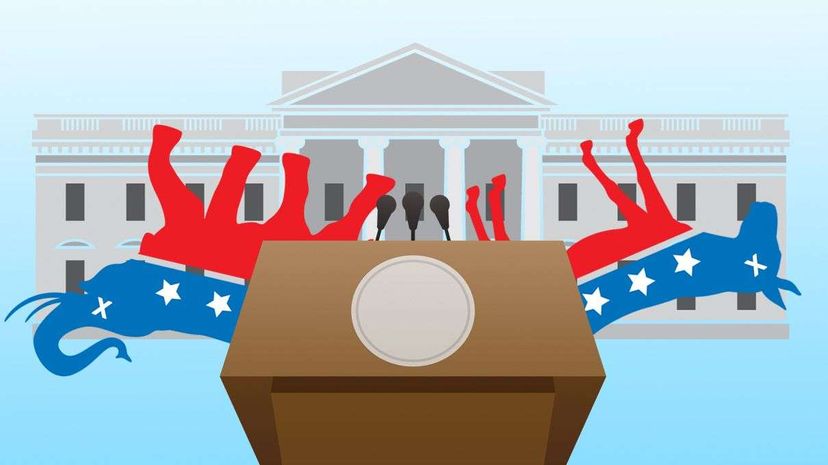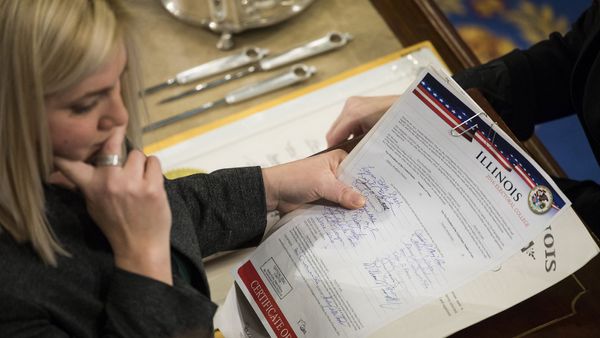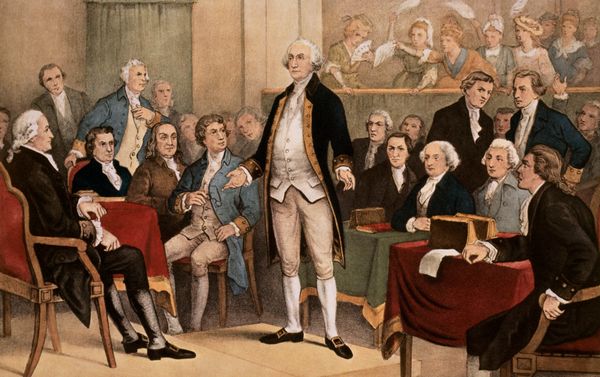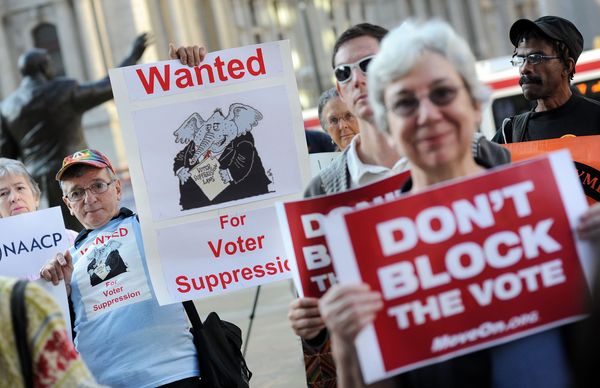
Every four years, the United States plunges into a quagmire of political fear mongering, divisiveness and character assassination — deeper into that quagmire, anyway. We're, of course, talking about the presidential election. And every four years, people ask: What happens if one of the candidates dies during the election?
It's an awkward but reasonable inquiry. The peaceful, orderly transfer of power is a defining trait of a working democracy, but the death of a candidate could throw a wrench in that process. It's happened once before in the United States in 1872.
Advertisement
That's when Horace Greeley joined a group of Republican dissenters who were against then-president Ulysses S. Grant's reelection, and formed the Liberal Republican Party. The party nominated Greeley for president.
Greeley gained more than 40 percent of the popular vote, but before the Electoral College met, Greeley died. Three electors pledged their votes for him anyway; other electors cast their Greeley votes for minor candidates instead. When the ballots went to Congress, lawmakers passed a measure declaring the Greeley votes invalid and certified the win for Grant. In the end, Grant was reelected with 286 electoral votes.
So what this means is the repercussions of a candidate's death depend primarily on when it occurs. And at some stages in the election process, it's not really clear what would happen.
Advertisement


